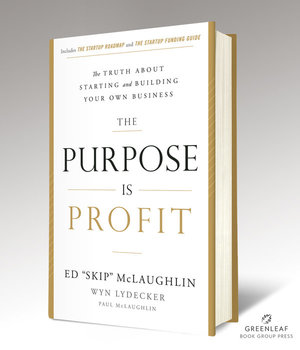
Eat the World with Proprietary Software
Previously published in smallbizdaily
By Ed McLaughlin and Wyn Lydecker
Five years ago (August 2011), Marc Andreessen, co-founder and general partner of venture capital firm Andreessen-Horowitz, famously said, “Software is eating the world.” His point was that most of the fastest growing companies were software companies. Moreover, all dominant companies were increasingly reliant on software to keep their businesses running and growing. Since then, Andreessen’s statement is more valid than ever.
Application software tools can generate new revenues and form the basis for a stand-alone profit center. Besides streamlining work processes and improving service delivery, software applications can enable your customers to manage workflows, eliminate process steps, and gain access to critical information. Proprietary applications can be so powerful that they can form a mutually dependent relationship between you and your customer.
Building Your Own Software
When we were scaling USI, a corporate real estate outsourcing company, we realized that we could serve our customers better by developing our own software application tools. As USI customers expanded around the world, they needed a reliable real estate management system to keep track of critical dates, projects, workflows, and costs. Initially, we devised a plan to develop a low-cost proprietary software application. However, since the dot-com boom was in full swing, we decided to take a step back to look at available market alternatives—there were over 300 new real estate applications coming online at that time. We engaged a major consulting firm to cull the list and study “buy, build, or partner” scenarios. To our dismay, the consultant’s final recommendation was a very costly custom-built solution.
Recognizing the limits of our customers’ budgets, we came back full circle to developing a low-cost, proprietary software application that would serve 80 percent of the need at 20 percent of the cost. Our goal was to meet most of our customers’ needs at a budget they all could afford. We called our application Sequentra. It was named after our customers’ primary need to “sequentially track” project work and expenses around the globe. Based on Sequentra’s revenue potential, we organized the application as a stand-alone profit center. Sequentra integrated all of our service lines into a single reporting dashboard for all of our customers.
Sequentra tightened the link with our customer base and created a barrier to entry for our competitors. It grew to become one of the dominant corporate real estate software solutions in the industry.
9 Questions to Ask When Building Your Software
When we built Sequentra, we focused on answering 9 questions:
- What information do your customers need to make better decisions?
- What tools do your customers need to better manage their work?
- How can you help your customers eliminate process steps and reduce operating costs?
- Are there software applications available in the market that solve these problems?
- If the applications are not available, can you develop proprietary applications to solve these problems?
- How can you utilize homegrown applications to tighten the link with your customers?
- Will your software applications create a sustainable competitive advantage?
- Can these applications create new revenue lines for your business?
- Can these new revenue lines be used to form a stand-alone profit center?
If you can answer these questions as you build your platform, you, too, can own software that is “eating the world,” increasing your profits, and placing you in a more dominant position in the market.
Excerpted in part from The Purpose Is Profit: The Truth about Starting and Building Your Own Business by Ed McLaughlin, Wyn Lydecker and Paul McLaughlin.
Ed “Skip” McLaughlin is the founder of four businesses and is currently running Blue Sunsets LLC, a real estate and angel investment firm based in Darien, CT. Follow him at @purposeisprofit. Wyn Lydecker is the founder of Upstart Business Planning, where she works with entrepreneurs to develop plans that answer the questions investors ask most often. Follow her at @upstartwyn.





Leave A Comment